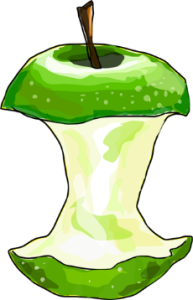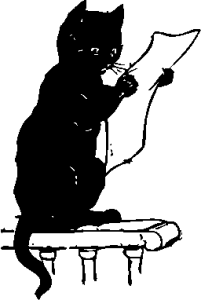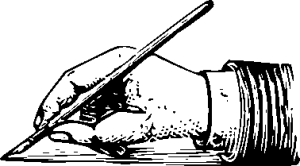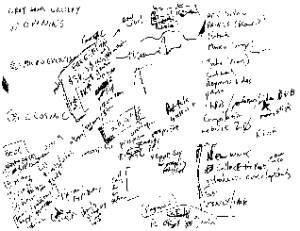13 Kapitel 9-4: Present and Past Participles (with adjective endings review)
9-4: Present and Past Participles (with adjective endings review)
By now, you’ve been using adjectives in German for quite a while. Some of them you have used in predicate nominative form, as you did through most of GR 101 and 102 (aka without adjective endings).
Mein Konto ist leer. ![]()
Others were in front of nouns and therefore needed adjective endings.
Toni hat immer ein leeres Konto.
In this section, you will see some adjectives that often get overlooked and misclassified as verbs.
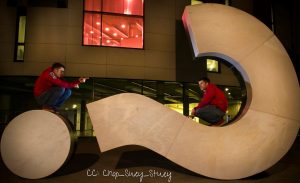
Past Participles as Adjectives: They express something that has already happened.
Verb: beißen—to bite
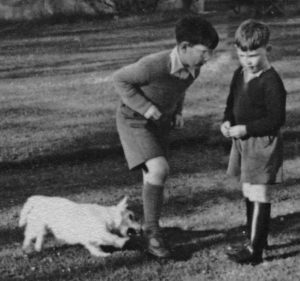
Der Hund hat den Jungen gebissen.
(The dog has bitten the boy).
In the example, gebissen is a verb—the Partizip of the infinitive beißen.
HOWEVER…if we put this past participle in front of a noun, we can make it into an adjective that describes the boy.

Der gebissene Junge weinte lange.
(The bitten boy cried for a long time.)
Notice that we also do this in English. We often take past participles and put them in front of nouns as adjectives.
Verb: brechen—to break
 Du hast mein Herz gebrochen.
Du hast mein Herz gebrochen.
Participle as adjective: gebrochen
 Er hat ein gebrochenes Herz.
Er hat ein gebrochenes Herz.
Speaking of broken hearts, feel free to listen to Yvonne Catterfeld’s song, Du hast mein Herz gebrochen, 2004.
Liedertext:
https://genius.com/Yvonne-catterfeld-du-hast-mein-herz-gebrochen-lyrics
If you need a review of adjective endings, here’s the chart once again. (Don’t feel bad if you’re not 100% on them yet; most students have to practice a LOT in order to get them.)

We can also make adjectives out of something called a present participle. These are equivalent to adjectives in English that have an –ing after them.
- The rising sun shone brightly.
- We saw a flowing stream.
- The playing children didn’t hear us.
In these examples, you may be thinking, “Aha! Those are all verbs!” However, since they’re used to describe nouns, they are adjectives. They work the same way in German, except that to form them, we add the suffix –d to the infinitive.
spielen + d = spielend
Die spielenden Kinder haben uns nicht gehört.
(Notice that the plural adjective ending –en was added to spielend.)
fließen—to flow = fließend
Wir sahen einen fließenden Bach.
(Notice that the masculine accusative adjective ending –en was added to fließend.)
auf·gehen—to rise = aufgehend
Die aufgehende Sonne schien hell.
(Notice that the feminine nominative ending –e was added to aufgehend.)
COMMON MISTAKE!!!
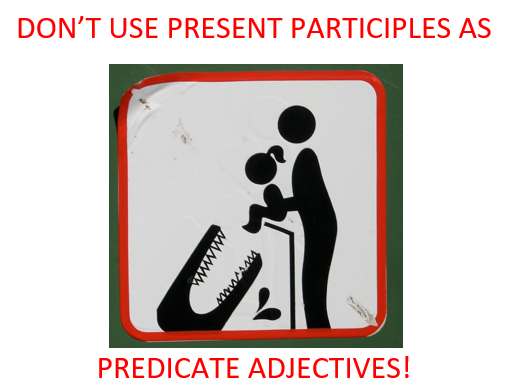
It’s almost as bad as feeding a child to a crocodile.
BAD EXAMPLES!!! WRONG EXAMPLES!!! INCORRECT EXAMPLES!!!
Falsch: Die Sonne ist aufgehend. Falsch! FALSCH! FALSCH!!!!
Richtig: Die Sonne geht auf. (The sun rises./The sun is rising./The sun does rise.)
Warum: Remember that German doesn’t have a separate way of expressing verb + –ing when conjugating verbs. It’s included in the present tense conjugation.
Only use present participles as adjectives IN FRONT OF NOUNS!!! This means you will need an adjective ending as well.
Check out Claudia Kost’s and Crystal Sawatzky’s (University of Alberta) review of present participles, as well as their adjective endings review with participles:
Ex. A: Adjektive. Beschreiben Sie jedes Bild mit Partizipien als Adjektive.
Beispiel:
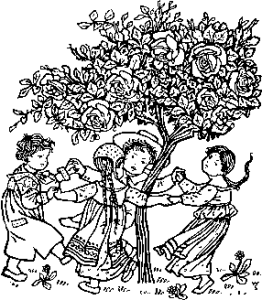
→Die tanzenden Kinder freuen sich.
→Die spielenden Kinder tanzen.
→Siehst du die tanzenden (spielenden) Kinder?…usw.
WIEDERHOLUNG: Hey, don’t forget about das Perfekt and das Präteritum! Go through this review of both by Claudia Kost and Crystal Sawatzky (University of Alberta).


